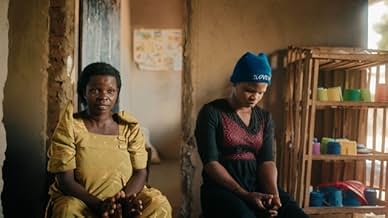In HBO's Savior Complex, we're drawn into the intense, polarizing world surrounding Renee Bach, an American missionary whose medical work in Uganda sparked a firestorm of controversy. Renee's journey is full of good intentions and real results, and while her methods might have been unconventional, her dedication to helping the vulnerable in Uganda is undeniable. But instead of her work being fairly assessed, she became the target of an online activist group, No White Saviors (NWS), led by Kelsey Nielsen and Olivia Alaso. The more we watch, the clearer it becomes: this isn't about a nuanced conversation on aid and charity work. It's about tearing down a woman who was, in many ways, doing the best she could in challenging circumstances.
Let's get one thing straight: Renee was genuinely trying to make a difference. Her organization treated thousands of children, and while mistakes were made, her clinic's death rates were actually lower than those of many Ugandan hospitals. That's a crucial point the documentary highlights, which raises the question why is NWS hell-bent on painting Renee as a villain? If they truly cared about the children of Uganda, wouldn't they be focusing on pushing for broader medical resources, more government support, or any number of solutions that could actually benefit the community?
Instead, Kelsey and Olivia make it clear they want one thing: Renee's destruction. They aren't just critical of her work; they're out for blood. The lengths they go to, even calling for her to lose custody of her own children, cross a line from criticism to something personal and vindictive. Rather than a balanced critique, their campaign feels almost like a smear, fueled by an egregiously racist narrative that presumes ill-intent just because of her skin color and foreign status.
This isn't to say that Renee was perfect. But let's compare her outcomes to other healthcare facilities in the area. Statistically, Renee's clinic had a better record in terms of child mortality than local hospitals a fact conveniently ignored by NWS. Instead of acknowledging that she was working within limited resources and a fragile infrastructure, Kelsey and Olivia's activism focuses on making her the scapegoat. They paint her as a white savior, ignoring the positive impact she had on real lives. This isn't activism; it's a witch hunt, plain and simple.
The documentary reveals a disturbing side of online activism. NWS isn't advocating for Ugandan children they're looking for a headline. Their platform could have been used to demand more support for Uganda's healthcare system, to uplift local doctors and nurses, or to spotlight stories of children who need help. Instead, Kelsey and Olivia made it about vilifying one individual to suit their own agenda.
At its heart, Savior Complex challenges us to think deeply about what it means to help, to question the motives of people who claim to be champions of justice. For Kelsey, Olivia, and NWS, the motives seem clear: this wasn't about protecting Ugandan children. It was about getting attention, clicks, and clout at the expense of someone who, despite her flaws, was trying to actually make a difference.








